With this Blog post. I’m expecting to talk about Bear vs Crocodile. Actually when it comes to these two biological creatures, both of them got very unique features. Mainly I have covered all the main features of these two animals BY comparing them scientifically, All the data is well researched and according the data I have added the winner for the each feature. So no need to wait, Read till the end to learn the wonderful and mind blowing features of these two legends Bear vs Crocodile.
1. Body Specifications
| Subtopic | Bear (Ursidae family) | Crocodile (Crocodylus spp.) | Winner |
|---|---|---|---|
| Average Weight | 270–680 kg (grizzly) | 450–1,000+ kg (Nile/Saltwater) | Crocodile |
| Body Length | 2–2.8 meters | 4–6 meters | Crocodile |
| Shoulder Height | ~1.1–1.4 meters | ~0.5 meters (body low to ground) | Bear |
| Body Shape | Muscular, barrel-chested | Elongated, low-profile | Tie |
| Muscle Mass % | ~45–55% | ~30–40% | Bear |
| Bone Density | High (supports mass) | Very high (armor-like) | Crocodile |
| Skin Thickness | 4–5 cm fat + fur layer | Osteoderms + scaly armor | Crocodile |
| Claw Size | Up to 10 cm | None (sharp teeth instead) | Bear |
| Tail Use | Balance and power | Primary for swimming, combat | Crocodile |
| Skull Size | Large, broad | Long, crushing jaws | Tie |
Winner: Crocodile (larger size, denser armor)
2. Coat and Coloration – Bear vs Crocodile
| Subtopic | Bear | Crocodile | Winner |
|---|---|---|---|
| Skin/Coat Type | Thick fur | Scaly, armored hide | Tie |
| Color | Brown, black, white | Olive, brown, grey | Tie |
| Camouflage Function | Seasonal coat changes | Excellent for aquatic ambush | Crocodile |
| UV Protection | Provided by fur | Scales offer natural UV block | Crocodile |
| Water Resistance | Moderate | High | Crocodile |
| Thermoregulation | Via fur and fat | Sun basking and water cooling | Tie |
| Shedding Cycle | Seasonal | Rare | Bear |
| Melanin Role | Color variation in fur | Affects scale tone | Tie |
| Protection Level | Fur protects from cold | Scales resist bites/slashes | Crocodile |
| Skin Renewal | Fur regrows | Sheds scutes | Tie |
Winner: Crocodile
3. Habitat and Range
| Subtopic | Bear | Crocodile | Winner |
|---|---|---|---|
| Geographic Range | North America, Eurasia | Africa, Asia, Australia | Tie |
| Habitat Types | Forests, tundra, mountains | Rivers, lakes, swamps, coastlines | Tie |
| Climate Tolerance | Arctic to temperate | Tropical to subtropical | Bear |
| Altitude Range | Up to 4,000 m | Mostly lowland | Bear |
| Aquatic Adaptation | Semi-aquatic (moderate) | Fully aquatic ambusher | Crocodile |
| Habitat Flexibility | Moderate | High | Crocodile |
| Shelter Use | Caves, dens | Burrows, water | Tie |
| Human Encounters | Moderate | High in tropical zones | Crocodile |
| Hibernation/Brumation | True hibernation (some species) | Brumation in dry season | Bear |
| Territoriality | Medium to large ranges | Strongly territorial in water | Tie |
Winner: Tie
4. Diet and Hunting – Bear vs Crocodile
| Subtopic | Bear | Crocodile | Winner |
|---|---|---|---|
| Diet Type | Omnivore | Carnivore | Tie |
| Primary Prey | Fish, ungulates, carrion | Fish, mammals, birds | Tie |
| Hunting Success Rate | Moderate (~20–30%) | Very high (~70–90%) | Crocodile |
| Hunting Strategy | Stalk and ambush | Ambush with death roll | Crocodile |
| Tools Used | Claws, bite, strength | Jaws, death roll, stealth | Tie |
| Caloric Requirement | ~20,000–58,000 kcal/day (grizzly) | ~3,000–5,000 kcal/day | Bear |
| Feeding Frequency | Daily/weekly | Weekly/monthly | Crocodile |
| Scavenging Ability | Excellent | Excellent | Tie |
| Food Storage | Cache food sometimes | None | Bear |
| Cannibalism | Rare | Documented in some species | Bear (less aggressive) |
Winner: Crocodile
5. Strength and Bite Force
| Subtopic | Bear | Crocodile | Winner |
|---|---|---|---|
| Bite Force (PSI) | ~975 PSI (grizzly) | 3,700–5,000 PSI (saltwater) | Crocodile |
| Claw Strength | Extremely powerful | N/A | Bear |
| Lifting Capacity | Up to 500 kg (grizzly) | N/A | Bear |
| Pulling Force | Extremely high | High (in water) | Bear |
| Jaw Structure | Broad crushing jaws | Elongated crushing jaws | Tie |
| Skull Robustness | Thick cranial bones | Dense skull for bite | Tie |
| Neck Strength | Powerful for shaking prey | Strong for death roll | Tie |
| Arm/Leg Strength | Extremely powerful limbs | Less developed limbs | Bear |
| Grip Strength | Can tear logs open | None | Bear |
| Combat Leverage | Upright stance, swipes | Death roll, tail lashes | Tie |
Winner: Bear (superior overall physical strength)
⚡ 6. Speed and Agility – Bear vs Crocodile
| Subtopic | Bear | Crocodile | Winner |
|---|---|---|---|
| Top Land Speed | 48 km/h (grizzly) | ~17 km/h (short bursts) | Bear |
| Top Water Speed | ~8 km/h (brown bear swimming) | 24–32 km/h in short bursts | Crocodile |
| Acceleration | Quick burst on land | Sudden water ambush | Tie |
| Agility on Land | Surprisingly agile | Very sluggish | Bear |
| Agility in Water | Decent swimmer | Extremely agile | Crocodile |
| Turning Radius | Tight for size | Poor on land, good in water | Tie |
| Jumping Ability | Moderate | None | Bear |
| Balance | Excellent for body size | Poor on land | Bear |
| Stamina | High endurance | Low (anaerobic sprinter) | Bear |
| Escape Potential | Can climb, swim, run | Retreats to water | Bear |
Winner: Bear
️ 7. Senses
| Subtopic | Bear | Crocodile | Winner |
|---|---|---|---|
| Vision Acuity | Good (especially in low light) | Moderate | Bear |
| Night Vision | Strong rod cells | Excellent underwater | Tie |
| Hearing Range | Broad and sensitive | Limited range | Bear |
| Olfactory Ability | Extremely powerful (2,100x humans) | Moderate | Bear |
| Underwater Detection | Weak | Excellent sensory pits | Crocodile |
| Sensory Organs | Nose, ears | Pressure receptors (Integumentary Sensory Organs) | Tie |
| Motion Detection | High | Extremely sensitive in water | Crocodile |
| Thermoreception | Present | High (via ISOs) | Crocodile |
| Auditory Localization | Sharp | Basic | Bear |
| Overall Sensory Balance | Strong across the board | Specialized to aquatic hunting | Bear |
Winner: Bear
8. Reproduction and Lifespan
| Subtopic | Bear | Crocodile | Winner |
|---|---|---|---|
| Gestation Period | ~6–8 months | ~80–90 days | Crocodile |
| Litter Size | 1–3 cubs | 30–60 eggs | Crocodile |
| Birth Type | Live birth | Oviparous (egg-laying) | Tie |
| Parental Care | Extensive maternal care | Moderate maternal guarding | Bear |
| Offspring Survival Rate | Moderate (50% reach adulthood) | Low (few survive predation) | Bear |
| Maturity Age | 4–6 years | 8–10 years | Bear |
| Reproductive Frequency | 2–3 years | Annual (in optimal conditions) | Crocodile |
| Lifespan (Wild) | 20–25 years | 50–70 years | Crocodile |
| Captivity Lifespan | 30+ years | 70+ years | Crocodile |
| Mating Behavior | Polygynous | Territorial + vocal displays | Tie |
Winner: Tie
9. Social Behavior – Bear vs Crocodile
| Subtopic | Bear | Crocodile | Winner |
|---|---|---|---|
| Social Structure | Mostly solitary | Mostly solitary | Tie |
| Territorial Range | Large home ranges | Strong aquatic territory | Tie |
| Conflict Resolution | Posturing or fighting | Combat or avoidance | Tie |
| Parental Investment | High (especially mother) | Moderate (guarding nest) | Bear |
| Social Hierarchies | None | Males may dominate basking spots | Crocodile |
| Communication | Vocal, scent marking, body language | Hissing, jaw snaps | Bear |
| Play Behavior | Cubs exhibit play | Rare | Bear |
| Learning Capability | High | Moderate | Bear |
| Memory | Strong spatial memory | Excellent waterway memory | Tie |
| Aggression Level | Medium to high | Very high | Tie |
Winner: Bear
10. Conservation Status
| Subtopic | Bear | Crocodile | Winner |
|---|---|---|---|
| IUCN Status (Grizzly) | Least Concern | Least Concern (Nile/Saltwater) | Tie |
| Global Population | ~200,000 grizzlies | >250,000 Nile, 200,000+ Saltwater | Crocodile |
| Habitat Loss Threat | Moderate | High due to land development | Bear |
| Poaching Level | High (fur, bile trade) | High (leather, trophy) | Tie |
| Climate Impact | Severe for polar bears | Minimal for most species | Bear |
| Conservation Programs | Extensive | Moderate | Bear |
| Reproductive Rate | Low | High | Crocodile |
| Captive Breeding Success | High | Moderate | Bear |
| Legal Protection | Strong in most countries | Varies widely | Bear |
| Education/Awareness | High | Moderate | Bear |
Winner: Bear
⚔️ Face-to-Face Fight: Who Would Win?
In a real Fight, Outcomes mostly depends on the place where fight occurs:
- On land: The bear wins. Its speed, stamina, powerful forelimbs, and intelligence make him powerful.
- In water: Crocodile wins. It’s faster, stealthier, and deadly with its bite force and death roll.if the bear is in the water Crocodile will get a massive chance to give his ambush attack.
So as an overall Still the place where fight occurs matters, But in most cases due to the powerful features, I can say that bear is walking away with the victory.
Final winner – Bear
✅ Reasons Why the Bear Wins:
- Superior speed, agility, and land combat skills.
- Greater physical strength and endurance.
- Advanced senses, especially smell and hearing.
- Higher intelligence and strategic behavior.
- Better equipped with claws, limbs, and mobility.
❌ Why the Crocodile Loses:
- Overly reliant on aquatic ambush.
- Poor mobility on land.
- Less adaptability to varied terrains.
- Vulnerable once its jaws are avoided or countered
Dont forget to leave a comment! What do you think? Who will win a battle between Bear vs Crocodile.
References :
- National Geographic – Bear Facts
- BBC Wildlife – Crocodile Biology
- Smithsonian’s National Zoo – Crocodilian Profile
- Journal of Zoology – Bite Force in Carnivores
- IUCN Red List – Bear and Crocodile Status
Wanna Read More – Crocodile vs Sloth bear – Who Would Win? Best Comparison
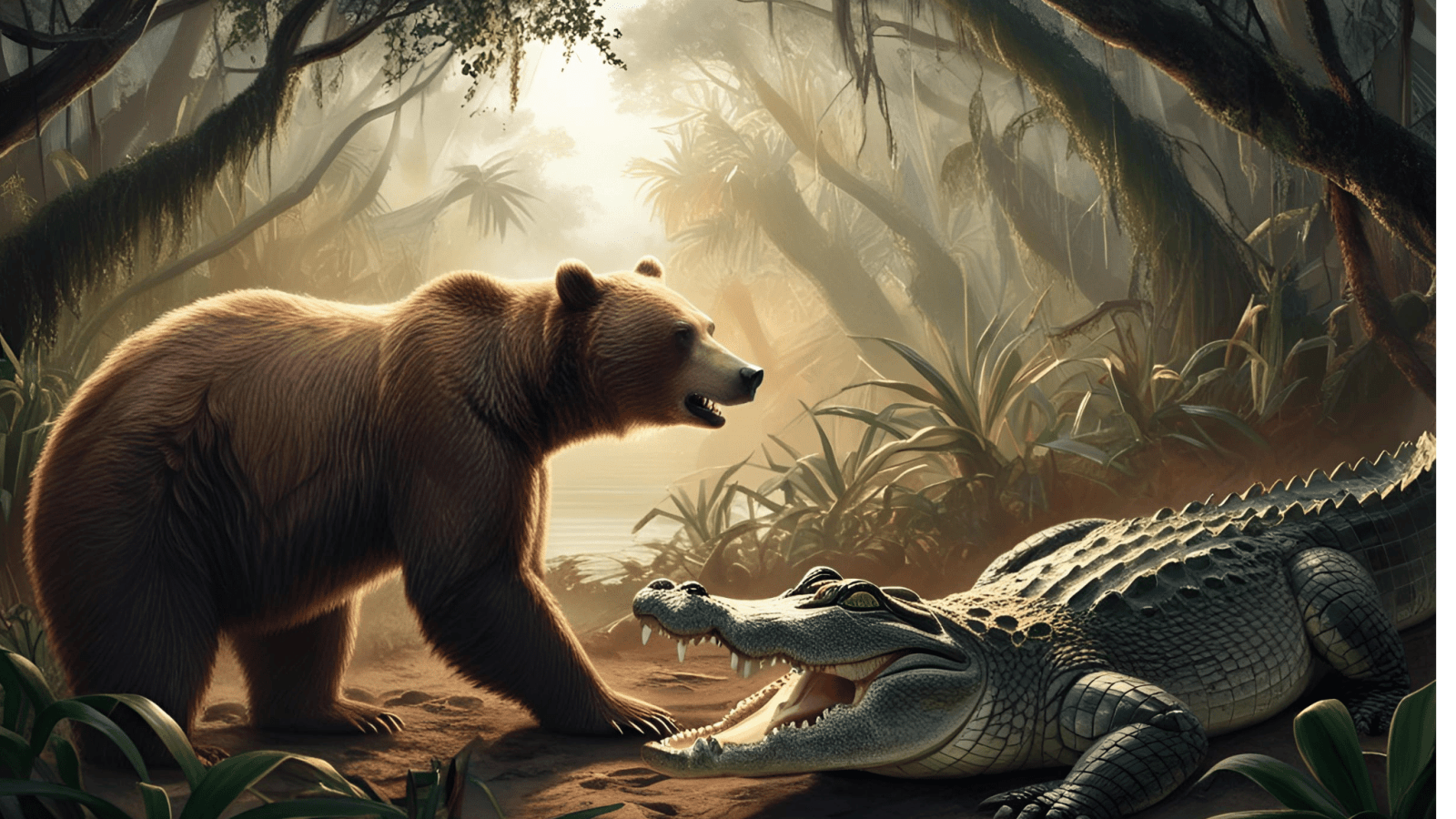
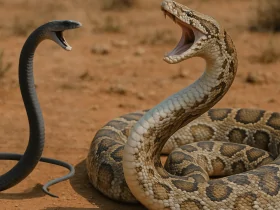
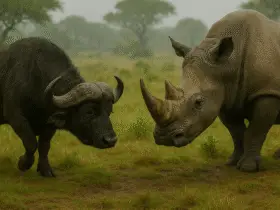
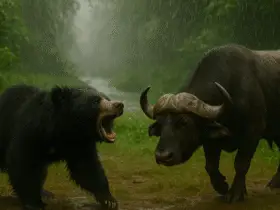
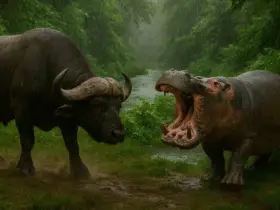
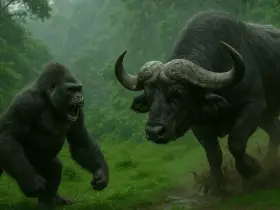
Leave a Reply